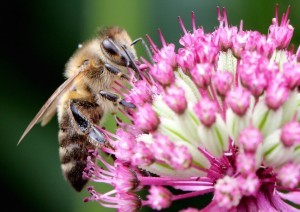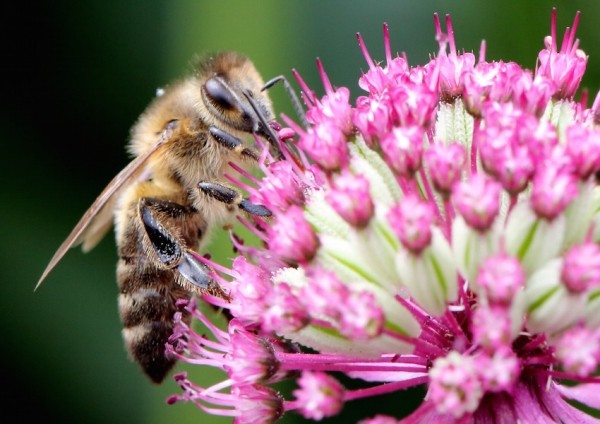
More than half the people in some developing countries could become newly at risk for malnutrition if crop-pollinating animals — like bees — continue to decline, experts say. Despite popular reports that pollinators are crucial for human nutritional health, no scientific studies have actually tested this claim — until now.
Global decline of pollinators and pollination services will have a devastating impact on the nutritional health of people in developing countries, especially women and children, if left unabated, according to a new study from scientists at the University of Vermont and Harvard University. This research is the first to examine how pollinators influence nutrient intake and the risk of nutrient deficiency. It also comes at a time when policy makers are slow to find long-term sustainable solutions to reversing pollinator declines, despite mounting scientific evidence urging immediate action.
A study shows that more than half the people in some developing countries could become newly at risk for malnutrition if crop-pollinating animals – like bees – continue to decline.
Despite popular reports that pollinators are crucial for human nutritional health, no scientific studies have actually tested this claim – until now. The new research by scientists at the University of Vermont and Harvard University has, for the first time, connected what people actually eat in four developing countries to the pollination requirements of the crops that provide their food and nutrients.
“The take-home is: pollinator declines can really matter to human health, with quite scary numbers for vitamin A deficiencies, for example,” says UVM scientist Taylor Ricketts who co-led the new study, “which can lead to blindness and increase death rates for some diseases, including malaria.”
It’s not just plummeting populations of bees. Scientists around the world have observed a worrisome decline …
Pollinators continue to face dire threats to their survival. Bees, butterflies, and others have seen drastic population declines over the last several years due to habitat loss and widespread pesticide use. Pesticides also pose a greater threat to ecosystems and biodiversity, according to a meta-analysis by a group of global, independent scientists. One class of pesticides in particular, the neonicotinoids, has been identified as a major factor in bee losses across the U.S. Neonicotinoids are highly toxic to bees and have been shown to, even at low levels, impair foraging, navigational and learning behavior in bees, as well as suppress their immune system to point of making them susceptible to pathogens and parasites. Read: No Longer a Big Mystery. The U.S. Environmental Protection Agency (EPA), tasked with regulating pesticides and protecting the environment from harm, has thus far failed to sufficiently act to protect pollinators from dangerous pesticides. In fact, just last week EPA approved yet another bee-toxic pesticide, flupyradifurone, following other recent and questionable bee-toxic pesticide approvals like sulfoxaflor, which was approved for registration despite warnings from concerned groups and beekeepers.
Please Read this Article at NyrnaturalNews.com





Leave a Reply